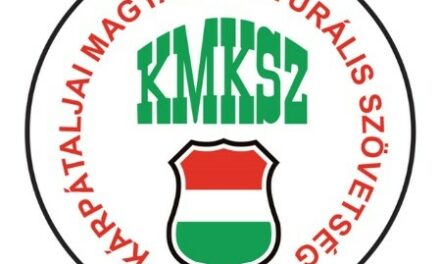On Thursday morning, the European Court of Human Rights in Strasbourg made a decision in the case of a Hungarian-language TV station in Slovakia, and after six years of deliberation, they decided to its claim for formal reasons
The complaint concerning Hungarian minority language use rights was not investigated on its merits because according to the Strasbourg judges, the submission was late, reports 444.hu.
The essence of the lawsuit was about drawing Europe's attention to language laws that discriminate against Hungarians in Slovakia. In many cases, the use of the Hungarian language alone can result in punishment in Slovakia, and this specific case highlights this situation.
The plaintiff is Gyula Pereszlényi, the owner of a company called Servis TV-Video, who operates a small TV channel from Párkány. 70 percent of the population of the city opposite Esztergom is Hungarian, and 80 percent of the surrounding settlements are Hungarians, and accordingly it would be logical if the local TV channel could also broadcast in Hungarian. Slovakian laws do not allow this: in addition to the Hungarian broadcasts of the public media, all radio and TV stations must also say everything in Slovak - subtitles or repeat the broadcast in Slovak.
On July 6, 2012, Pereszlényi TV reported on a serious road accident near Párkány, and two eyewitnesses also spoke in the report, in Hungarian. Their words were not subtitled or translated, they just told what they saw. It's a few sentences.
The authority cracked down on the violation of the law. In February 2013, the Slovak media council fined the TV station 165 euros for failing to fulfill its translation obligations. The current judgment in Strasbourg, more than eight years later, was obviously not important because of the 165 euros (58 thousand at today's prices, 48 thousand forints at the exchange rate at the time), but because of the law on the basis of which this penalty could be imposed, and which has remained unchanged ever since. is in force.
At that time, Gyula Pereszlényi did not give up, he challenged the fine first in the Slovak Supreme Court, and then, when it was rejected, then in the Slovak Constitutional Court, from which he also withdrew in 2015.
The current judgment in Strasbourg says that the Slovak Constitutional Court did not have jurisdiction in the case, so they should have been approached immediately after the judgment of the Supreme Court. You can turn to Strasbourg if the complainant has already gone through all the possible appeal forums in the domestic legal system, so it seemed logical to wait for the decision of the local constitutional court with the petition. It is an unexpected turn of events that this waiting has now become the loss of the submission. The fact that it took six years for the judges in Strasbourg to decide whether the Slovak Constitutional Court could have dealt with the matter on its merits shows that judging the issue is by no means self-evident.
The lawyer who signed the petition, János Fiala-Butora, told 444 that he will soon bring a similar case to Strasbourg, and "the fight against the Slovak law that discriminates against the Hungarian-language press will continue."
Slovakia strongly restricts the use of the Hungarian language
Slovakia strongly restricts the use of the Hungarian language, despite the fact that about 10 percent of the country's population is Hungarian and it is an EU member state where, at least according to the basic principles, it would be appropriate to take the population's human rights seriously. In the case of advertisements and municipal signs, Slovakian laws require that everything must be written in Slovak in the same size.
Hungarians are allowed to use the official language only in settlements where at least 20 percent of the population declared themselves Hungarian at the last census (following the next census planned for this year, this limit will be lowered to 15 percent). It follows from the outset that in the big cities, where the most important offices are located, it is not possible to conduct business in Hungarian. Where possible, the management of the settlement has the right to provide a Hungarian-speaking clerk only for a certain part of the customer reception time.
In recent years, the law that fundamentally limits the operation of Hungarian-language TV and radio stations has been used in recent years to limit the Hungarian language in sometimes quite absurd cases.
the entire article HERE .
Cover image: Pixabay













